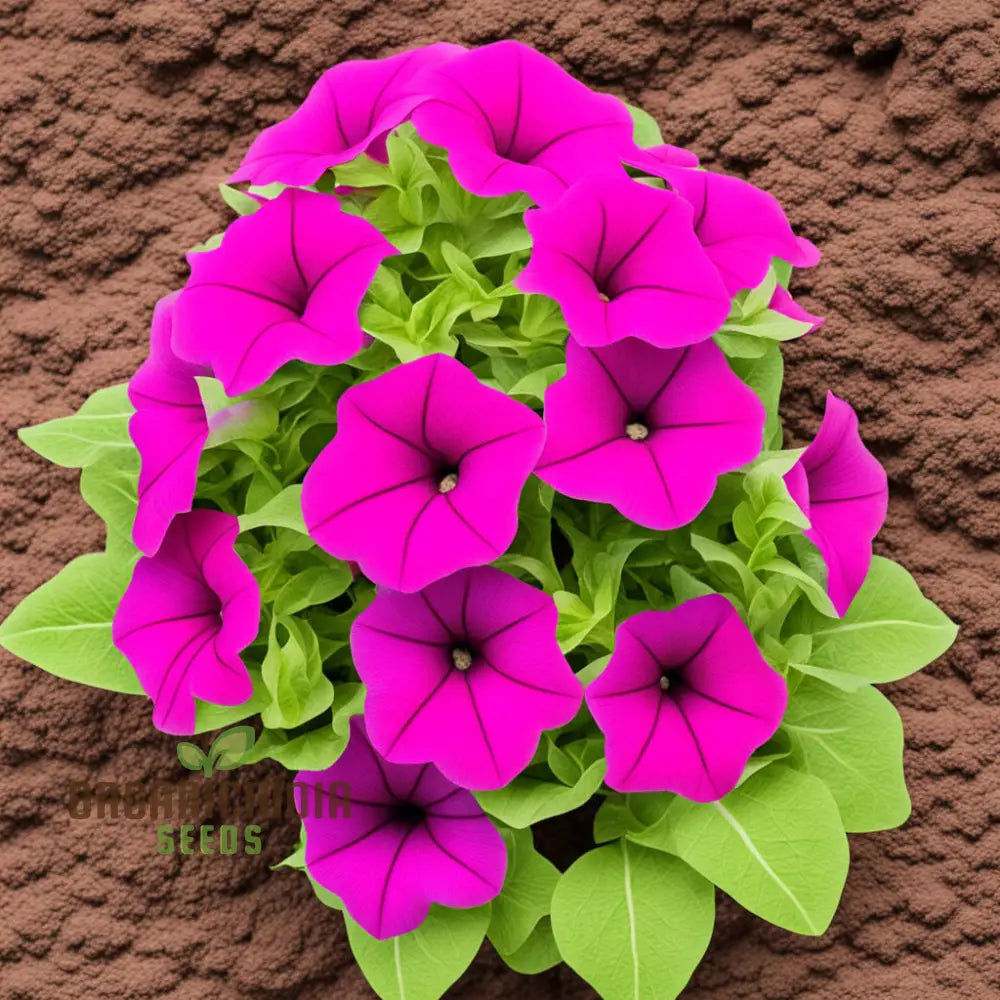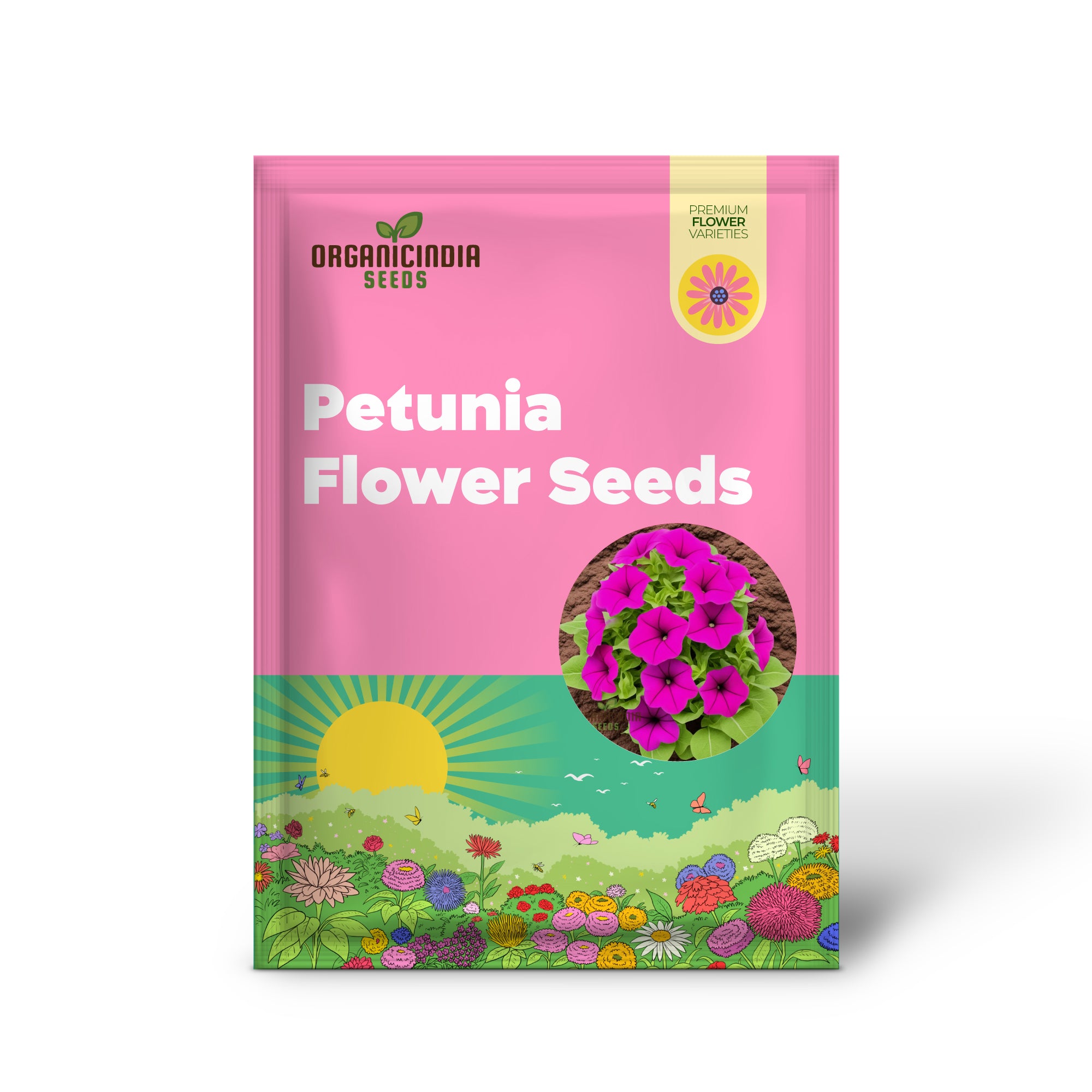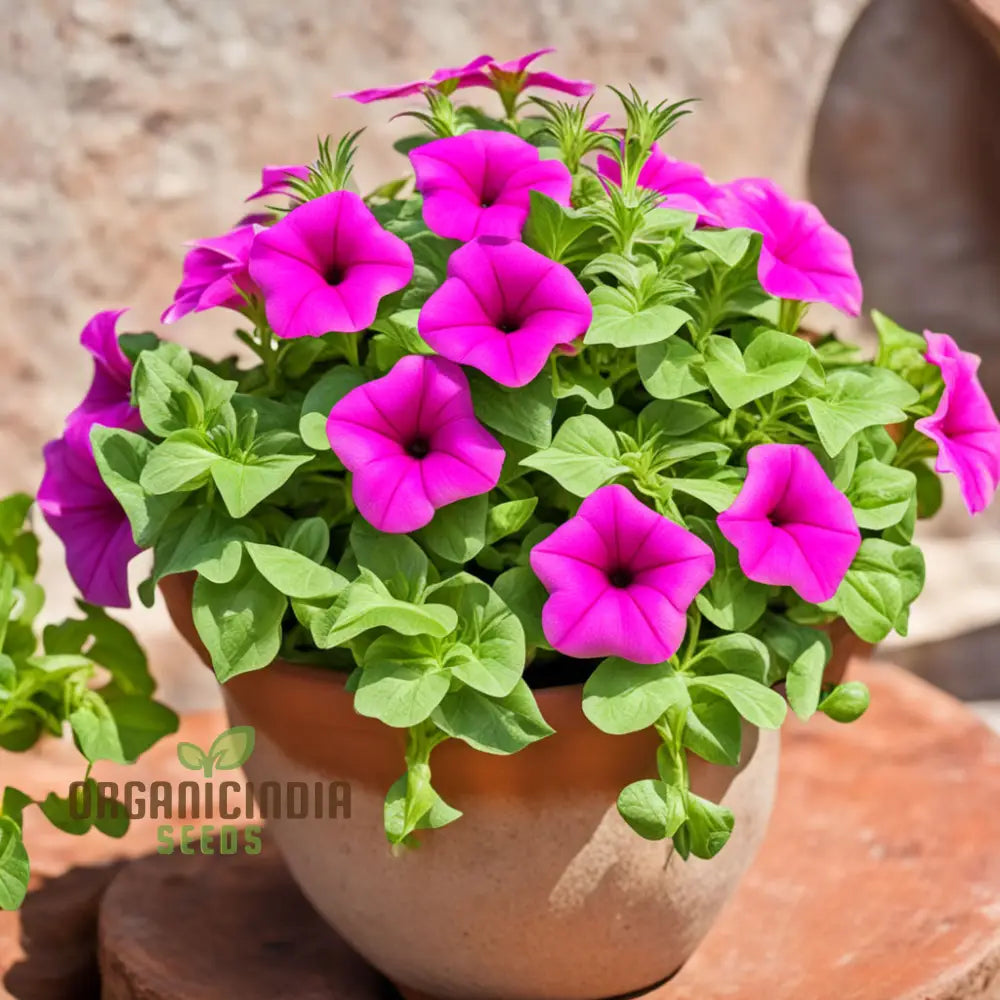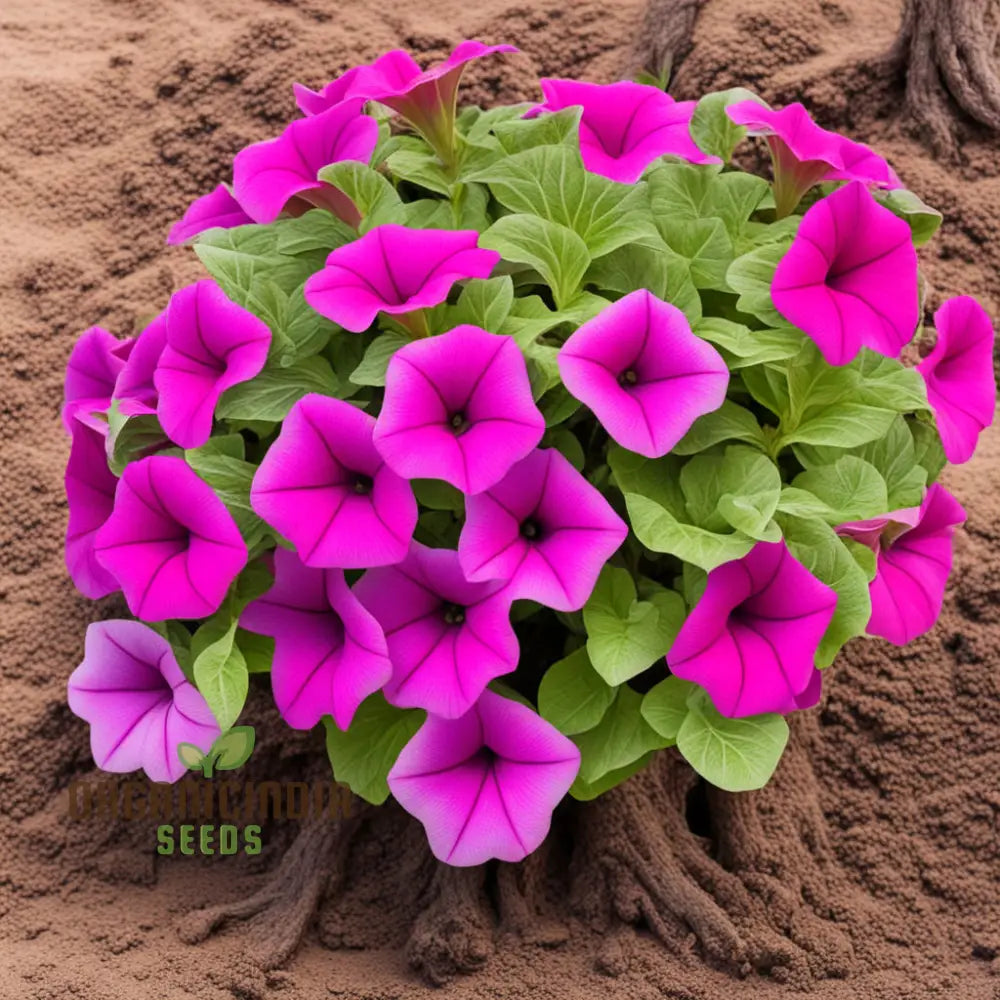





Free Shipping
Safe & Secure Payments
Growing Information :
Key Attributes:
Quantity: Available in packs of 100, 500, or 1,000 seeds per pack
Mature Height: Varies depending on the variety (typically 6 to 18 inches)
Light Requirements: Full sun to partial shade
Soil Requirements: Well-draining soil with good fertility
Uses:
Ideal for adding colorful blooms to garden beds, containers, hanging baskets, and borders
Product Details:
Germination Rate: High
Seeds Freshness: New, ensuring optimal germination
Origin: Sustainably sourced
Shelf Life: Best planted within 1 year for maximum germination
Planting Instructions:
Seed Preparation:
Petunia seeds do not require special preparation. However, soaking the seeds in warm water for a few hours before planting can help soften the seed coat and speed up germination.
Sowing:
Choose a sunny location in your garden with well-draining soil.
Prepare the planting area by loosening the soil to a depth of 6 to 8 inches, removing any weeds or debris.
Sow the Petunia seeds directly into the soil after the last frost date in your area. Scatter the seeds evenly and gently press them into the soil.
Alternatively, start seeds indoors 6 to 8 weeks before the last frost and transplant the seedlings outdoors after the danger of frost has passed.
Germination:
Keep the soil consistently moist but not waterlogged during germination.
Germination typically occurs within 7 to 14 days, but it may take longer in cooler temperatures.
Transplanting:
Once the seedlings develop several sets of true leaves, thin them to the desired spacing if necessary.
If starting seeds indoors, transplant the seedlings outdoors after the danger of frost has passed and the soil has warmed up.
Care and Maintenance:
Water the Petunias regularly, especially during dry periods, to keep the soil evenly moist.
Deadhead spent flowers regularly to encourage continuous blooming and prevent seed formation, which can reduce flower production.
Petunias are low-maintenance plants but benefit from occasional pruning to remove leggy or damaged growth.
In hot climates, provide afternoon shade to prevent wilting and scorching.
Petunias may self-seed, producing new plants the following year. To control self-seeding, remove spent flowers before they set seed.
Where flowers bloom, so does hope. Happy gardening!
Choose options



